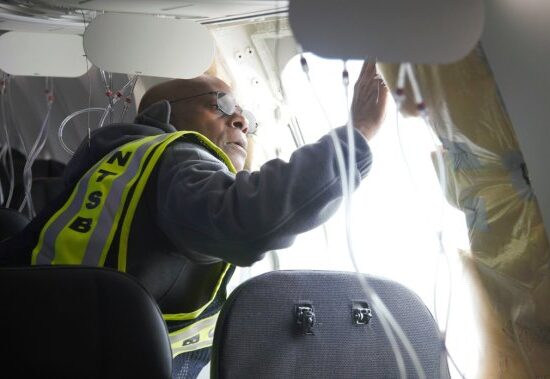
Loneliness has long been a growing issue in Canada, but the COVID-19 pandemic has only amplified the problem with increased social isolation and decreased social support.
The link between loneliness and physical health is well-established, with the U.S. Center for Disease Control and Prevention saying it can lead to dementia, heart disease, stroke and even premature death.
“Loneliness is as bad for you as smoking,” said Dr. Jacques Lee, a staff physician at Mount Sinai Emergency Department, adding that it may actually contribute to 45,000 deaths a year in Canada, citing an ongoing clinical trial by Mount Sinai Hospital.
“Loneliness was here before COVID, (and it) certainly made it worse. But loneliness is not going to be gone after COVID,” he added.
Although isolation can affect all age groups, Less said he witnessed many elderly people suffering from loneliness, especially during the pandemic.
During the first wave of the pandemic in 2020, Lee was working in the emergency room and said he met an elderly man. While the man previously had COVID-19, that’s not why he was at the hospital: the man felt he was dying from loneliness.


“But what happened is they had basically locked him in the room and were leaving a meal tray. And he wasn’t allowed to leave his room, even though he had fully recovered.”
Lee said he was isolated from the world for around three months.
“He said ‘Doc, I’m dying of loneliness, I can’t live like this’,” Lee explained. “I didn’t have a prescription for that, I didn’t know what to do for him,” he added.
After this encounter, Lee said he started to diagnose patients who came into the emergency room differently.
“Loneliness was not a vital sign I used to take. Before it was, ‘What’s your blood pressure? What’s the temperature?’ And definitely, since then, I’ve really tried to add that to my standard approach to people,” he said.
Now when he diagnoses a patient he will ask them questions regarding isolation, such as who they are living with or whether the patient has family.
“It’s highly stigmatized as well. People are ashamed of being lonely. People feel that it’s their fault if they don’t have people in their life,” Lee added.
‘Loneliness reshapes the brain’
One of the ways loneliness and isolation affect physical and mental health is by “altering people’s brains that contribute to disconnection,” Jake Ernst, a social worker and clinical director of Straight Up Health in Toronto, said.
“It changes our executive functioning, which happens in the front of our brain, and it actually starts to impact the way that we can connect, think, plan, organize and socially engage with other people,” Ernst explained.
He cited a 2019 study published in The New England Journal of Medicine, that found after a small group of crew members spent 14 months living on a remote research station in Antarctica, the extreme isolation shrank their brains.
A team of researchers scanned the crew members’ brains before and after the trip and found that certain places in the organ had shrunk during the trip, but mainly in the hippocampus region. This is the part of the brain needed for learning and memory. The researchers said the reason for the brain reduction may have been due to a lack of social stimulation.
“Our core fundamental being as a human species is a social one. We are deeply connected to each other because we need each other in order to survive. And so when we disrupt that process of connection, where we take that off the table for us, we start to deteriorate,” Lee explained.

“And I think that’s what we’re starting to see here, is that the brain is actually registering the sense of, ‘Oh, I guess we don’t need other people, we don’t need to be connected to other people. So we’re not going to use this part of the brain as much,’” he said.
Ernst blames technology and social deterioration for this trend — meaning that people have fewer friendships and community connections, resulting in a state of isolation.
The decline in social connections and community ties is a troubling pattern in many countries, especially since the pandemic.
A 2022 survey released by the Centre for Addiction and Mental Health (CAMH) found that between July 2021 and January 2022, there were increased rates of anxiety, loneliness and depression among respondents.
For example, 25 per cent of respondents reported feeling moderate to severe anxiety, up from 19 per cent in July 2021.
The survey also found that Canadians between 18 and 39 years old reported the highest levels of moderate to severe anxiety, loneliness and feelings of depression of any age group (33.5 per cent for anxiety, 29.1 per cent for loneliness and 27.7 per cent for feelings of depression).
Another survey by Statistics Canada in mid-2021 found that more than 40 per cent of Canadians feel lonely some or all of the time, with the problem worst among single people and those who live alone.
If this trend continues, Lee believes people are going to continue to see a deterioration in their mental health.
Loneliness is as deadly as smoking
Dr. Vivek Murthy, the U.S. surgeon general, released a report on May 2, titled ‘Our Epidemic of Loneliness and Isolation’, stating that loneliness in the U.S. poses health risks as deadly as smoking a dozen cigarettes daily, costing the health industry billions of dollars annually.
Loneliness increases the risk of premature death by nearly 30 per cent, the report stated, adding that those with poor social relationships also had a greater risk of stroke and heart disease.
Additionally, the lack of social connection may increase susceptibility to viruses and respiratory illness, the report stated.
This isn’t the first report to draw a link between loneliness and physical health.
In 2015, researchers from Brigham Young University in Utah found that loneliness and social isolation are just as much a threat to longevity as obesity.

“Current evidence indicates that heightened risk for mortality from a lack of social relationships is greater than that from obesity, with the risk from social isolation and loneliness being equivalent to the risk associated with Grades 2 and 3 obesity…. researchers have predicted that loneliness will reach epidemic proportions by 2030 unless action is taken,” the authors stated.
The reasoning behind this, Lee explained, is that people tend to make “pro-health” decisions in a communal setting.
For example, a husband or wife may remind their partner to take medications or book a doctor’s appointment.
“When you’re on your own, the things we tend to do are not so healthy, such as smoke, eat poorly, sleep poorly, not go outside, not exercise — it’s really a perfect storm,” he added.
Lee and Ernst both agree that the loneliness crisis in Canada should be tackled the same way as anti-smoking campaigns.
“I think that social media litigation is going to become the next tobacco litigation,” Ernst said. “We are going to need to see some significant shifts from our policymakers in terms of social media if we want to repair the crisis of loneliness that is currently occurring.”
In order to help fix the loneliness crisis, Ernst suggested starting with, “deep healing, deep therapy and deep connection.”
He gave the example of introducing small moments of reconnection, such as family dinners, stopping phone use before bed or sharing a meal with a friend.
“It is about returning to our innate core needs. As humans, we are a social species, which means that we need each other in order to be well. And when we are cut off from relationships or when there’s something in between us, like a phone or some sort of technology, then that just starts to erode our sense of connection to other people,” he said.
















